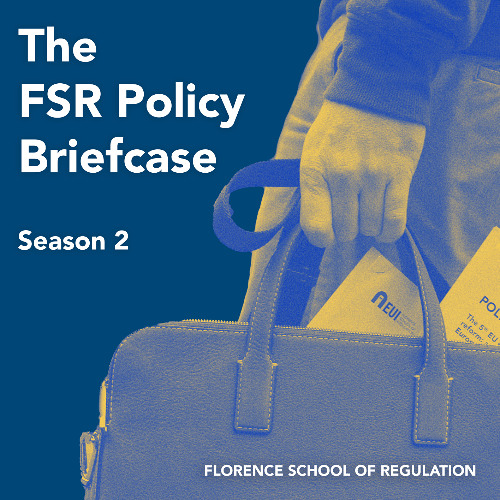System Operation and Data Management – Getting the Bigger Picture Into Focus?

The digitalization of Europe’s energy markets raises numerous questions in different regulatory contexts. This debate will examine novel regulatory issues raised by the drive towards system interoperability. What should be the overarching principles governing a European energy data space? What government interventions or data standards (if any) are required to make specific data use cases successful for achieving green transition goals? What types of regulatory instruments are best suited to achieve these goals?
On 1 June 2022, the European Union Agency for the Cooperation of Energy Regulators (ACER) was asked by the European Commission to submit non-binding framework guidelines setting out clear objective principles for the development of a network code on demand response, including load, storage and distributed generation. The new rules will aim at enabling market access for demand response, as well as facilitating the market-based procurement of services by distribution and transmission system operators.
The proposed new EU rules on Data governance will aim at enabling market access for demand response, as well as facilitating the market-based procurement of services by distribution and transmission system operators. In the meantime, the European Commission will also publish its Digitalisation of Energy Action Plan to develop a competitive market for digital energy services and digital energy infrastructure that are cyber-secure, efficient and sustainable and ensure interoperability of energy data, platforms and services.
What should be the overarching principles governing a European energy data space? What government interventions or data standards (if any) are required to make specific data use cases successful for achieving green transition goals? What types of regulatory instruments are best suited to achieve these goals?
Background
The proposed network code applies to all resource providers, all transmission and distribution system operators, and all wholesale markets and covers balancing and congestion management. A number of its draft articles (see the ACER framework guideline of June 2020) will apply to system operation and data management (articles 51 -74) and to congestion management (articles 84-104). These articles envisage, inter alia, new EU rules on Data governance including data quality, responsibilities, data privacy and confidentiality and interoperability.
Albeit highly technical, these provisions raise important ‘high-level’ questions about data management and transparency. For example, it may be argued that even if transparency towards market parties is important to support the development of liquid and efficient markets, the publication of detailed grid and market data can also be problematic in some cases as the ability to predict congestions could cause gaming and market power abuse opportunities.
On 23 February 2022, the European Commission published a proposal for a Regulation on harmonized rules on fair access to and use of data (hereafter referred to as the “Data Act”), to complement previous initiatives, including the EC communication entitled ‘A European strategy for data’ of 19 February 2020, and its Regulation 2022/868, commonly referred as the ‘Data Governance Act’. The proposed ‘Data Act’ will be legally binding and directly applicable in all member states. Its applicability to those active in the electricity markets at all levels is potentially very broad. The Commission is also expected to publish its roadmap on the Digitalisation of Energy Action Plan – to develop a competitive market for digital energy services and digital energy infrastructure that are cyber-secure, efficient and sustainable and ensure interoperability of energy data, platforms and services.
How will these more general initiatives interact with the specific issues to be covered in the proposed network code – if at all? The EU DSO Entity has for example already questioned a provision in the FG that TSOs shall receive all the data exchanged between the grid users and the SOs. It is argued that data exchange between system operators should be bi-directional and limited to necessary data, and further that it might be better to highlight that the new rules must be in line with higher-level data regulation (including the new Data Act).
This FSR debate seeks to explore several broad themes arising out of these new regulatory developments with experts on the regulation of the European Union’s electricity market.
Agenda:
Introduction & opening presentations
Leigh Hancher | Florence School of Regulation (FSR) and Tilburg University
Astrid Brunt | Statnett
Sonya Twohig | ENTSO-E
Panel discussion
Paul de Wit | EU DSO Entity
Marco Pasquadibisceglie | ARERA
Georg Harnter | Geode
Savannah Altvater | Eurelectric
Concluding remarks
Leigh Hancher | FSR and Tilburg University
Alberto Pototschnig | FSR
Don’t miss any update on our events
Sign up for free and access the latest events from our community.














